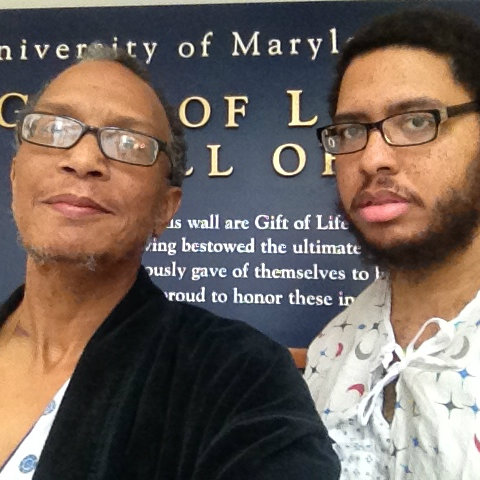Living Donor Liver Transplant Culminates in Spirit of Kwanzaa

"In a way, you could say sailing saved my life."
Sailing, and his 33-year old son, that is.
Brian Morrison, PhD, had just returned from sailing his boat when he noticed that his ankles were swollen. A visit to his general practitioner confirmed that he needed blood tests to help determine the cause. Brian, a high school history teacher and father of five, was shocked to learn he had hepatitis C. Like many baby boomers today, he could not pinpoint how he had contracted the disease. Hepatitis C affects more than 3 million people in the U.S., according to the Office of Population Affairs, although half of them do not know they are infected.
He was told that the Hep C virus would cause his liver to eventually fail and that he would need a liver transplant. In his mind, a liver transplant was at least 10 years away.
When Brian fell into a coma at a local hospital for four days, he and wife Tanya agreed it was time to get serious about how they were going to deal with his diagnosis. With the encouragement and support of his physician Brian met with the liver transplant team at UMMC. He knew that living donation was an option to help him get transplanted earlier in his liver failure so that he could recover more quickly and be matched with a better donor.
When his oldest son, Akil Parker, a high school math teacher in Philadelphia, got the phone call that his dad's liver was failing, he immediately said, "What's my blood type? Can I donate part of my liver to him?"
Akil said, "My father raised me to be the type of man who would step forward to help someone else. NOT to do it wasn't an option. I thought about Dr. Martin Luther King's speech "I've Been to the Mountaintop." In it, he cites a biblical passage where two men passed a man who had been robbed on Jericho Road. One man asked, "If I stop to help this man, what will happen to me? The Good Samaritan then walked by and said, 'If I do not stop to help this man, what will happen to him?' When I considered this story, I instinctively connected it to my own African spirituality and knew I had to help my father."
Akil and Brian were both O+, but Akil was not eligible to be a living donor until he lost weight. Over the summer, he became a vegetarian and cut out all alcohol. He dropped 15-20 pounds.
On December 17, Akil underwent surgery to donate 60% of his liver to his father. The team of four liver transplant surgeons worked all day to make sure everything went smoothly. Both men are recovering well and are anxious to get back to living their normal lives. Brian hopes to remind others, especially African-Americans, how important it is to get tested for Hepatitis C.
As many celebrate Kwanzaa for the next several days, Brian said this transplant experience embodies all seven principles of the Nguzo Saba (unity, self-determination, collective work and responsibility, cooperative economics, creativity, purpose and culminating in faith).
For Brian and Tanya, teaching their children to serve others came full circle when Akil gave of himself to save his dad. For a parent, it doesn't get better than that.
Contact Us
To schedule a conversation with the liver team, please call 410-328-4030.
For Referring Physicians
To refer a patient or get more information, please call 1-800-373-4111. A physician service representative from Consultation and Referral Services will direct your call to the appropriate physician or department.
For more details, please visit our section for Referring Physicians.
